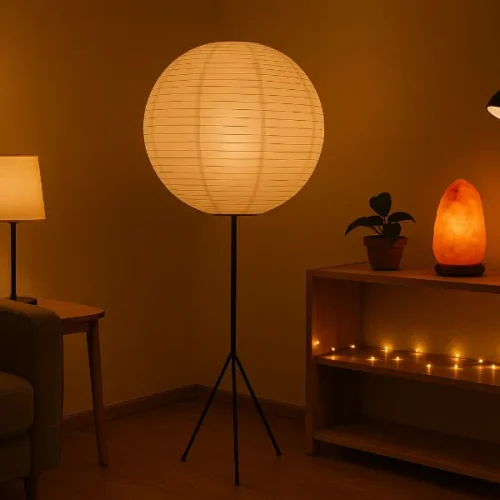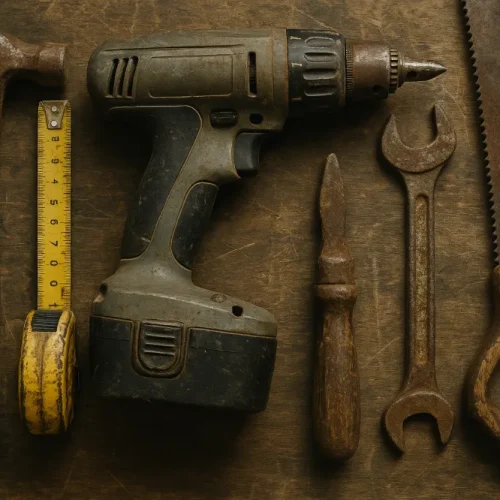
Have you been thinking about updating your home but feel unsure where to begin? Many homeowners want to refresh their spaces yet find the process overwhelming. From budgeting to hiring contractors, a home renovation involves multiple steps that require careful thought. The good news is that planning the right way can make everything run smoothly, save time, and help you avoid unnecessary stress. You don’t have to rush through it or guess your way forward. Taking time to plan smartly helps you create a space that fits your lifestyle and budget.
In this blog, we will share the smart way to plan your next home renovation so you can move forward with confidence.
Start with a Clear Vision
Every great renovation begins with a strong idea of what you want to achieve. Think about what isn’t working in your home right now. Maybe your kitchen feels cramped, or your bathroom needs an update. Start by listing areas you’d like to change and the features that matter most to you. Collect photos from magazines or websites to visualize your goals. This will help you see what styles, materials, and layouts appeal to you.
Once you have a sense of direction, think about how your lifestyle fits into that vision. If you enjoy hosting family dinners, an open kitchen might make sense. If you need more quiet space, adding a study could be the right choice. Being specific about your goals helps guide every decision ahead. A clear vision becomes your map throughout the renovation process.
Set a Realistic Budget and Timeline
One of the most important steps in any renovation plan is setting a realistic budget. It’s easy to underestimate costs, especially when unexpected issues arise. Get multiple quotes from contractors and research material prices before deciding on your spending limit.
When researching local professionals, look for reliable websites such as https://www.xl-contracting.com/ to find contractors who have experience with projects similar to yours. Working with reputable experts can save you time and money in the long run. Alongside budgeting, create a reasonable timeline that accounts for order delays or seasonal factors. Planning both time and cost carefully helps you stay on track while maintaining flexibility when small issues arise.
Research and Hire the Right Professionals
Finding the right team can make or break your renovation. You’ll want professionals who communicate well, respect deadlines, and understand your goals. Start by reading reviews, asking for referrals, and checking portfolios. Meet with a few contractors to discuss your project before deciding who to hire. Trust and communication are key in any renovation relationship.
Once you’ve chosen a contractor, make sure every agreement is in writing. This should include the scope of work, deadlines, payment schedules, and materials to be used. Having everything documented avoids confusion later. A good contractor will keep you updated at each stage, answer questions, and handle permits when needed. Building a strong partnership from the start sets your project up for success.
Plan the Design and Layout Carefully
Before construction begins, spend time perfecting the design and layout. This step shapes how your new space will function and look. Work with your designer or contractor to finalize floor plans, color schemes, and materials. Think about both style and practicality. A design that looks good but doesn’t work for your daily needs won’t serve you well in the long term.
If you’re reworking spaces like kitchens or bathrooms, focus on efficiency. Plan where outlets, plumbing, and lighting will go. Pay attention to small details like storage and flow between rooms. Making design decisions early prevents costly changes later. When you see your plan on paper, it’s easier to adjust things before construction begins.
Get the Right Permits and Approvals
Many homeowners overlook permits until it’s too late, which can cause major delays. Before any work begins, check your local building regulations. Some renovations, like electrical or structural changes, need city or county approval. Your contractor can help you understand which permits are required. It’s always better to handle this step early rather than risk fines or project stoppages.
Permits exist to keep your home safe and compliant with local codes. They also protect you when it’s time to sell, since buyers often ask for proof that major work was approved. Take time to file the proper documents and wait for approval before starting. Once you have everything cleared, your renovation can move forward without unnecessary interruptions.
Focus on Quality Materials
It can be tempting to cut costs by choosing cheaper materials, but that often leads to more expenses later. Quality materials last longer, look better, and add value to your home. Choose durable flooring, solid cabinetry, and energy-efficient windows. If you’re unsure what to pick, ask your contractor or designer for advice on what performs best in your area.
Investing in high-quality materials doesn’t mean you have to overspend. Compare prices, look for seasonal sales, and ask suppliers about alternatives that balance cost and performance. Think about how your choices will hold up over time. The right materials can save you maintenance costs and improve your comfort for years to come.
Prepare for the Disruption
Renovations can get messy, noisy, and inconvenient, especially if you’re living in your home during the work. Before construction starts, decide how you’ll manage daily life. Set up a temporary kitchen if your main one is being redone or move important items out of the way. Protect your furniture from dust and plan for alternative routines, such as eating out or staying with family during intense phases.
Talk openly with your contractor about the schedule and expected noise or disruptions. Clear communication helps you plan around work hours and minimize stress. The more prepared you are for temporary changes, the easier the process will feel. Remember that a little patience now leads to long-term satisfaction once your renovation is complete.
In conclusion, renovating your home can feel like a big task, but with the right approach, it becomes a rewarding experience. Taking time to plan, budget, and communicate with trusted professionals makes a world of difference. Every step, from setting a clear vision to completing the final walkthrough, shapes the quality of your results. Thoughtful planning turns an ordinary project into a space that fits your life and style perfectly.
FAQs
Begin by identifying problem areas in your home and creating a clear vision of the changes you want.
Get multiple quotes, research material prices, and include a buffer for unexpected costs.
Yes, experienced contractors help ensure quality, safety, and proper project management.
Check reviews, portfolios, communication style, and make sure all agreements are in writing.
A realistic schedule keeps the project organized and helps you plan around delays or material lead times.
Not all, but structural, electrical, or plumbing work often does—always verify with local regulations.
Select durable, long-lasting materials that match your style, budget, and local climate.
Communicate regularly with your contractor and prepare for temporary disruptions at home.
Yes, completing design decisions early prevents costly changes later in the project.
Often you can, but it may require temporary setups, protective coverings, and schedule adjustments.













